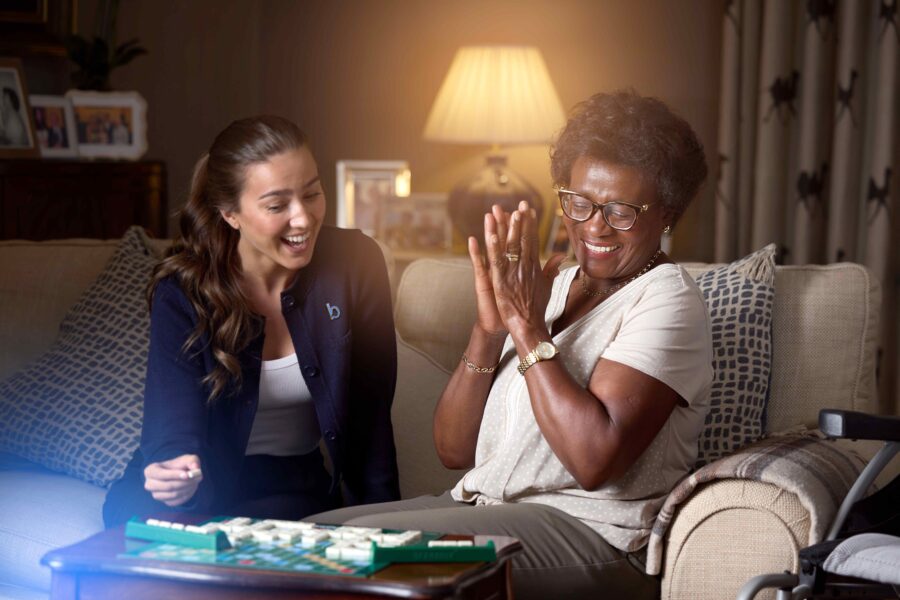

Blog post
How do I know if I need a sight test?
Throughout your life, you may experience visual symptoms, and it can be challenging to know whether you need a sight test. While you should have a regular sight test every two years (unless advised otherwise), your eyes may be telling you it’s time for a sight test sooner! If you have any eye-related concerns, you should speak with your optician.
How do I know if I need a sight test?
Firstly, it’s essential to understand that you shouldn’t rush to the optician at first sight of an eye-related symptom.
For instance, did you know that it’s common for our eyes to ache due to a bad cold, sinus infection or lack of sleep?
After resting, drinking plenty of fluids and taking vitamins the effects of a cold, for example, should start to ease.
However, if you experience pain or redness that is limited to the eyes and causes irritation, then you should visit your local optician.
An optician is better clinically equipped to diagnose the cause of an eye-related symptom.
If needed, the optician may refer you or advise you to follow up with your GP.
Common symptoms
Dry eye (blepharitis)
The most common cause of eye pain is dry eye syndrome or blepharitis, which is inflammation of the eyelid.
Watery eyes can ironically be a sign of dry eye, along with redness, stinging, blurry vision or a gritty sensation.
However, it's easy to confuse these symptoms with tiredness.
Dry eye test
So, a good test is to stare straight ahead at something for as long as possible.
If you feel discomfort or need to blink before 10 seconds are up, it could be dry eye.
You should make an appointment with your local optician to have a sight test.
While dry eye can be a natural sign of growing old, it’s recently on the rise in younger people.
As we spend more time staring at screens, we blink less while we concentrate.
As a result, the hydrating tears on the surface of the eye to evaporate before we can replace them.
Unfortunately, there’s no cure for dry eye. Still, there are several ways to manage or improve symptoms, including using prescribed preservative-free eye drops.
Bloodshot eyes
Another tell-tale sign of whether you need an eye test is if you have bloodshot eyes.
Bloodshot eyes can be the result of several things, from sleepless nights and allergies to dry eye.
Common causes of bloodshot eyes include infections such as conjunctivitis.
However, if the redness is significant and causes discomfort, you should make an appointment with your local optician.
Visual disturbances
Persistent temporary and permanent visual disturbances can be another sign that you need a sight test.
A visual disturbance is something that interferes with your eyesight - most commonly flashing lights, kaleidoscope vision, zig-zag patterns and blind spots.
Visual disturbances can include partial or complete blindness for a brief period, which can be extremely distressing.
However, if you experience a curtain or shadow in your vision, you should visit an eye hospital or A&E within 24 hours.
When should I visit the optician for visual disturbances?
If you often experience visual disturbances, you should visit your local optician - whether or not you’re experiencing the symptoms at the time.
Although over-the-counter or prescription treatments can help to relieve symptoms, there may be an underlying reason for the frequent disturbances.
While many conditions can cause these symptoms, they’re most commonly associated with ocular and retinal migraines, otherwise known as visual migraines.
Typically, visual migraines cause problems in both eyes at the same time and can last up to half an hour.
A visual migraine will usually subside by itself, but the best thing to do is rest until it’s better.
As the symptoms can appear with or without a headache, it can be hard to recognise what they are.
If you’re unsure whether it’s a migraine, you should seek advice from your optician.
Advice
Any pain, irritation and discomfort caused by dry eye, bloodshot eye, visual disturbances or other conditions can restrict daily life.
It’s vital to monitor your symptoms and if persistent, you should visit your local optician for a sight test.
If there's an underlying general health or eye condition, the earlier it is diagnosed, the sooner you can receive treatment to help prevent it progressing.
If out of hours, contact NHS 24 by dialling 111 for advice. For any eye injuries that need urgent attention, visit your nearest eye hospital or A&E.











